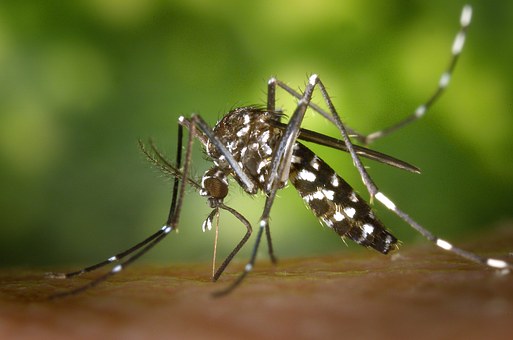Community
Massachusetts Department of Public Health announce that West Nile virus detected in Bristol County

BOSTON (July 13, 2022) – The Massachusetts Department of Public Health today announced that West Nile virus has been detected in mosquitoes in Massachusetts for the first time this year. The presence of WNV was confirmed today by the Massachusetts State Public Health Laboratory in a mosquito sample collected July 11th in the town of Easton in Bristol County. No human or animal cases of WNV or Eastern equine encephalitis have been detected so far this year. There is no elevated risk level or risk-level change associated with this finding.
“West Nile virus is part of summer in Massachusetts, and we expect to see infected mosquitoes at this time of year,” said Public Health Commissioner Margret Cooke. “Now is the time to start taking steps to avoid mosquito bites. While WNV can cause serious illness, there are things that you can do to protect yourself and your loved ones.”
WNV is usually transmitted to humans through the bite of an infected mosquito. There were 11 human cases of WNV in 2021. While WNV can infect people of all ages, people over the age of 50 are at higher risk for severe disease. Most people infected with WNV will have no symptoms. When present, WNV symptoms tend to include fever and flu-like illness. In rare cases, more severe illness can occur.
“Simple actions can help protect you from mosquito bites and the diseases they can cause,” said State Epidemiologist Dr. Catherine M. Brown. “Use a mosquito repellent with an EPA-registered ingredient, wear clothing to reduce exposed skin, drain standing water and repair window screens. We also encourage you to make it a habit to check the mosquito-borne disease webpages on mass.gov so you know when and where WNV activity is occurring.”
Avoid Mosquito Bites
Apply Insect Repellent when Outdoors. Use a repellent with an EPA-registered ingredient DEET (N,N-diethyl-m-toluamide), permethrin, picaridin (KBR 3023), oil of lemon eucalyptus (p-Menthane-3,8-diol (PMD)] or IR3535) according to the instructions on the product label. DEET products should not be used on infants under two months of age and should be used in concentrations of 30 percent or less on older children. Oil of lemon eucalyptus should not be used on children under three years of age.
Be Aware of Peak Mosquito Hours. The hours from dusk to dawn are peak biting times for many mosquitoes. Consider rescheduling outdoor activities that occur during evening or early morning in areas of high risk.
Clothing Can Help Reduce Mosquito Bites. Wearing long-sleeves, long pants and socks when outdoors will help keep mosquitoes away from your skin.
Mosquito-Proof Your Home
Drain Standing Water. Mosquitoes lay their eggs in standing water. Limit the number of places around your home for mosquitoes to breed by draining or discarding items that hold water. Check rain gutters and drains. Empty unused flowerpots and wading pools and change the water in birdbaths frequently.
Install or Repair Screens. Keep mosquitoes outside by having tightly-fitting screens on all of your windows and doors.
Protect Your Animals
Animal owners should reduce potential mosquito breeding sites on their property by eliminating standing water from containers such as buckets, tires, and wading pools – especially after heavy rains. Water troughs provide excellent mosquito breeding habitats and should be flushed out at least once a week during the summer months to reduce mosquitoes near paddock areas. Horse owners should keep horses in indoor stalls at night to reduce their risk of exposure to mosquitoes. Owners should also speak with their veterinarian about mosquito repellents approved for use in animals and vaccinations to prevent WNV and EEE. If an animal is suspected of having WNV or EEE, owners are required to report to the Department of Agricultural Resources, Division of Animal Health by calling 617-626-1795, and to the Department of Public Health by calling 617-983-6800.
More information, including all WNV and EEE positive results, can be found on the Arbovirus Surveillance Information web page at Mosquito-borne Diseases | Mass.gov, which is updated daily, or by calling the DPH Division of Epidemiology at 617-983-6800.






Victory=Mutiny
July 13, 2022 at 7:14 pm
Just as they have for the past what, 15 years? King Tut brought that shit to America, just to bring down Donald J Trump. Antifa are known to have non-consentual relations with mosquitos just to advance the spread of West-Nile Virus in Blue States. Forget MonkeyPox, West Nile Virus will give you the Schatts! Stay safe comrades!